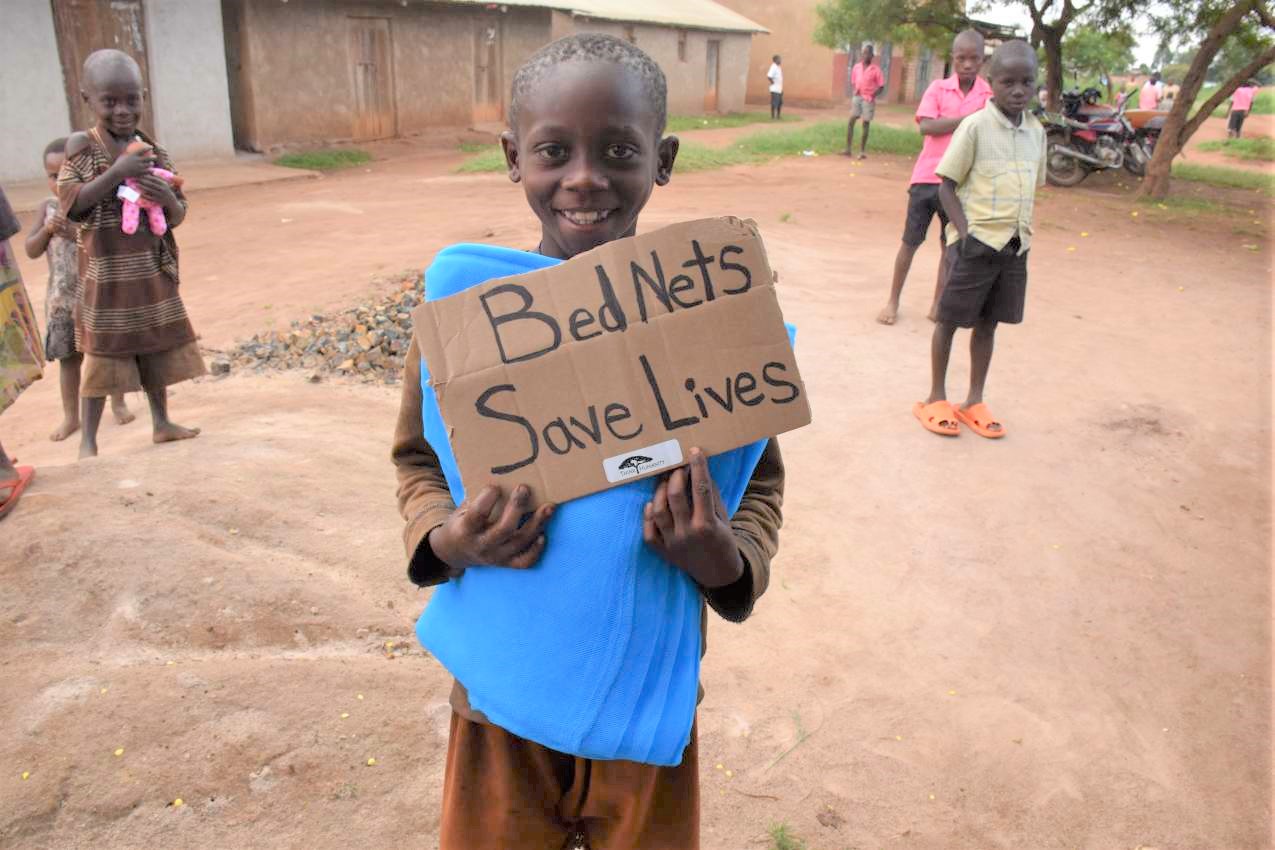Bed Nets 4 Life
What is malaria?
Malaria is a disease of the blood that is transmitted to people by an infected female mosquito. Malaria infects and destroys red blood cells (anemia) and clogs the capillaries that carry blood to the brain (cerebral malaria) or to the vital organs.
The Ugandan Ministry of Health estimates that malaria kills 320 people in Uganda every day. This is based on reported cases, yet in rural villages many cases go unreported. 90 percent of malaria related deaths occur in sub-Saharan Africa and a child under the age of five years dies from malaria every two minutes.
Problem
- Malaria kills more African children than any other disease.
- There is currently no vaccine available to prevent malaria. A parasite vaccine would be the first of its kind. It may be 30 to 40 percent effective and it will be recommended to continue to use a mosquito net.
- Due to abject poverty, most families in Uganda cannot afford to purchase a bed net or treatment.
Prevention solution
- Long-lasting Insecticide-treated bed nets (LLINs) have been shown to be the most cost-effective prevention method against malaria.
- With donations to Think Humanity, the TH team can purchase, transport, and educate communities on the importance of mosquito nets and demonstrate how to use them properly.
Good news
- Think Humanity uses the highest quality bed nets recommended by the World Health Organization (WHO).
- By using LLINs the vector mosquito will be repelled and/or killed when coming into contact with the strong insecticide-treated netting material.
- LLINs can be purchased for $5 each (more or less depending on the market) and will last up to five years. The longer useful life of the LLIN, the cheaper it is to use, even if the initial purchase price is higher.
- Studies have shown that when LLINs are used, child illnesses and mortality rates decrease significantly.
- Think Humanity net distributions have been shown to reduce cases of malaria as much as 96 percent.
- A study has shown that relatively modest coverage (60 percent) of all adults and children can achieve community-wide benefits.
- When parents and guardians are healthy they are able to care for their children and work to provide for their families.
- They will no longer be spending their money on malaria treatment, which could otherwise go towards basics such as providing their children with food and education.
Who receives mosquito nets?
Think Humanity freely gives bed nets to refugees, internally displaced, and people from isolated and underdeveloped villages in Uganda. The people we serve are from various countries; Uganda, Democratic Republic of the Congo, Rwanda, Sudan, and locations where people have been forced to leave their country due to war.
Think Humanity has purchased and distributed approximately 130,230 bed nets in Uganda.
Insecticide-Treated Mosquito Nets: a WHO Position Statement

